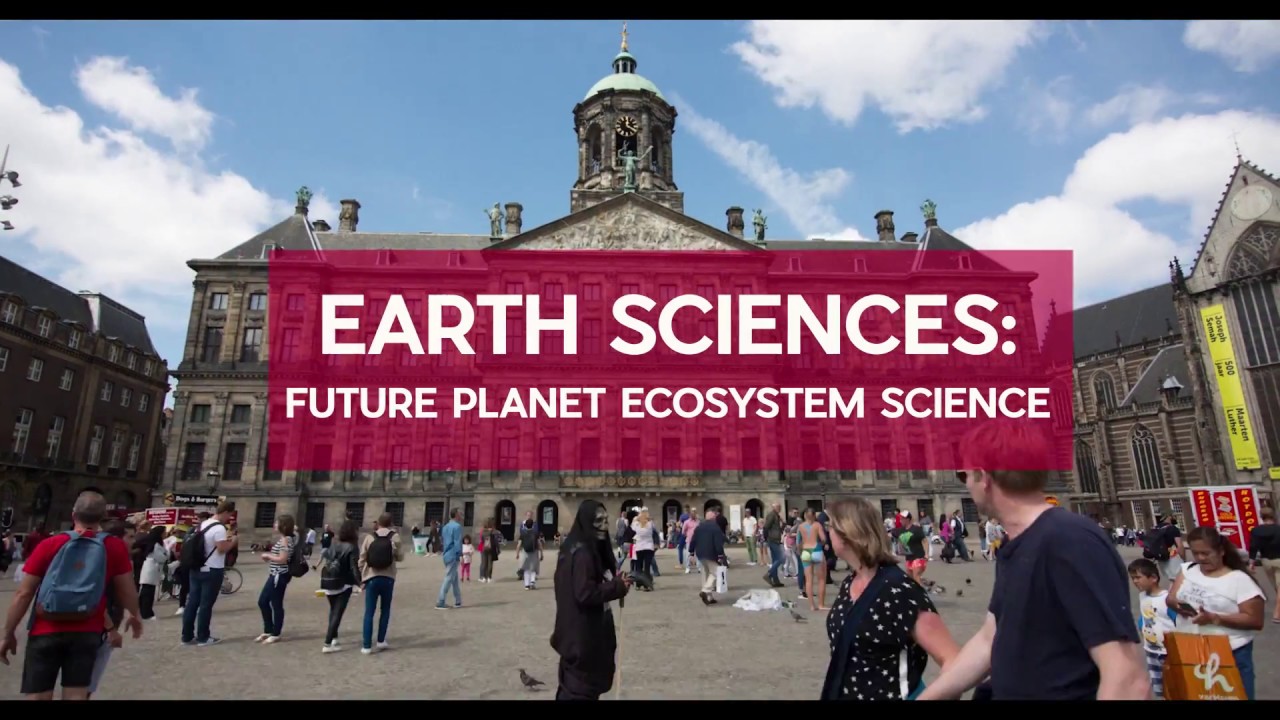Take A Closer Look at: Robotics Laboratory at University of Amsterdam
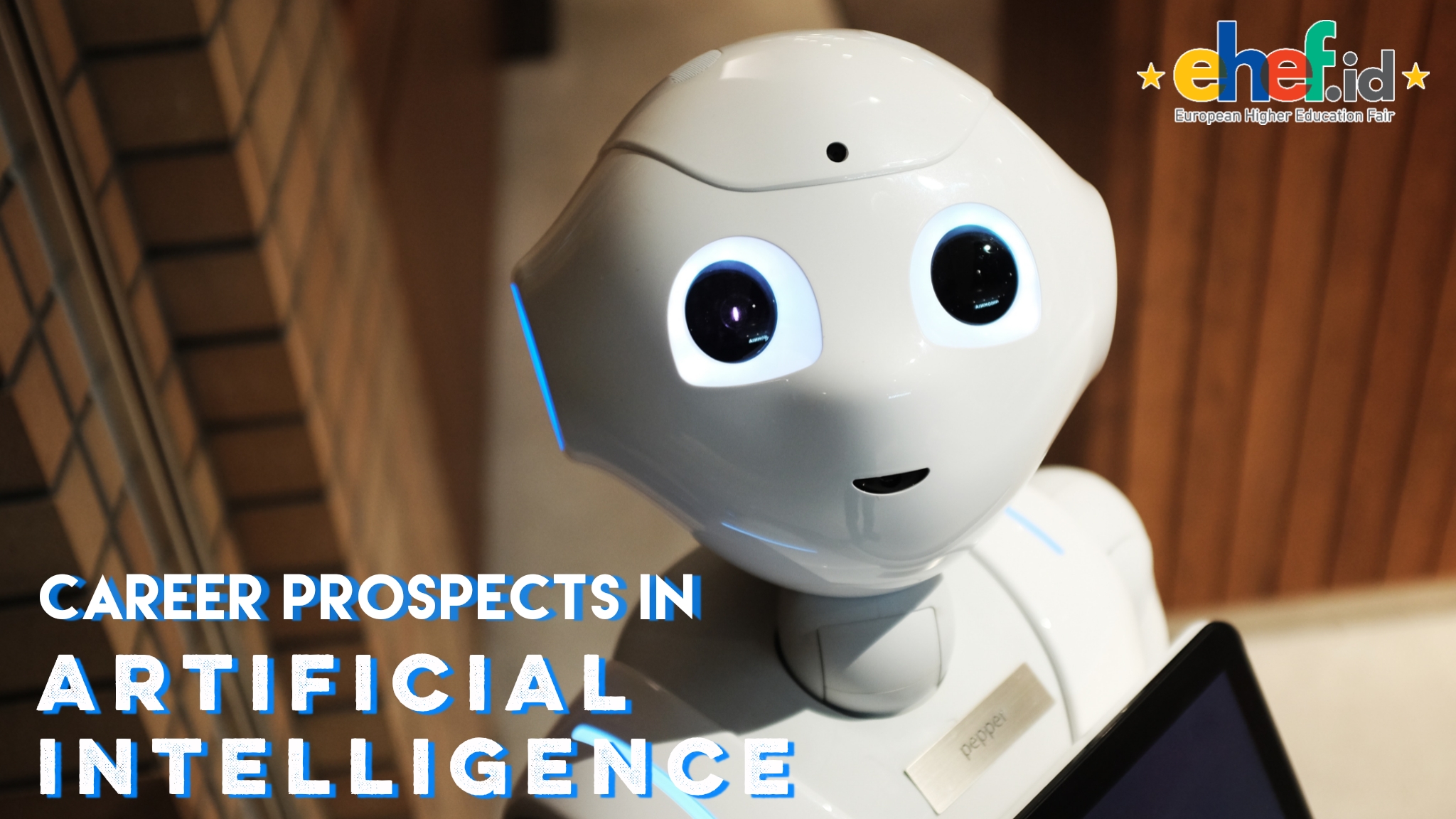
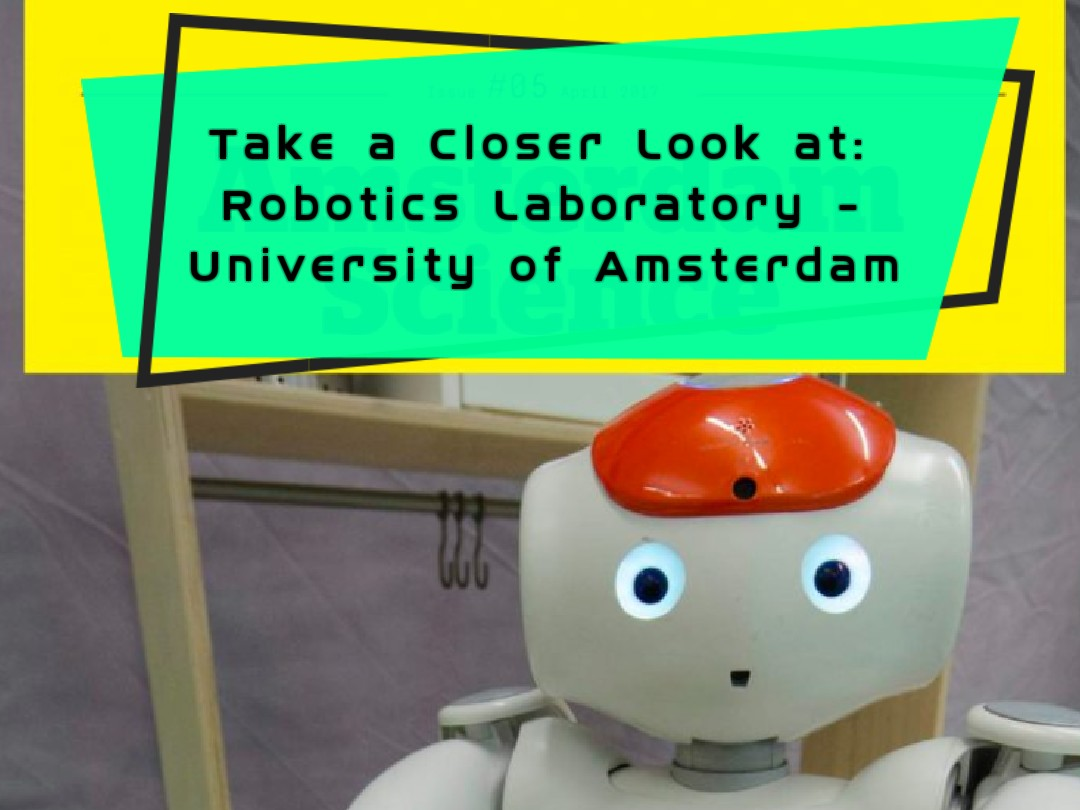
By Jenny Egnér Lin
What is the Intelligent Robotics Laboratory?
The Intelligent Robotics Laboratory (IRL) is a vibrant part of the Informatics Institute at the University of Amsterdam, and runs as a cooperation between students and staff from the University of Amsterdam and the Vrije Universiteit who are active in the research and education in robotics.
The Intelligent Robotics Laboratory was founded in 2012 by the Dutch Nao Team - a competing team in RoboCup - as a student initiative of the University of Amsterdam to guarantee the continuation of the robotic teams of the university. It started as a governing body for all the robotic teams of the university, which participate in various leagues of the RoboCup and the International Micro Aerial Vehicle Competitions.
Growing from a student body organising teams for RoboCup, the Intelligent Robotics Laboratory has become a recognised center for research and projects related to the fields of robotics, artificial intelligence, and machine learning. A number of research papers and articles have been written within the The Intelligent Robotics Laboratory.
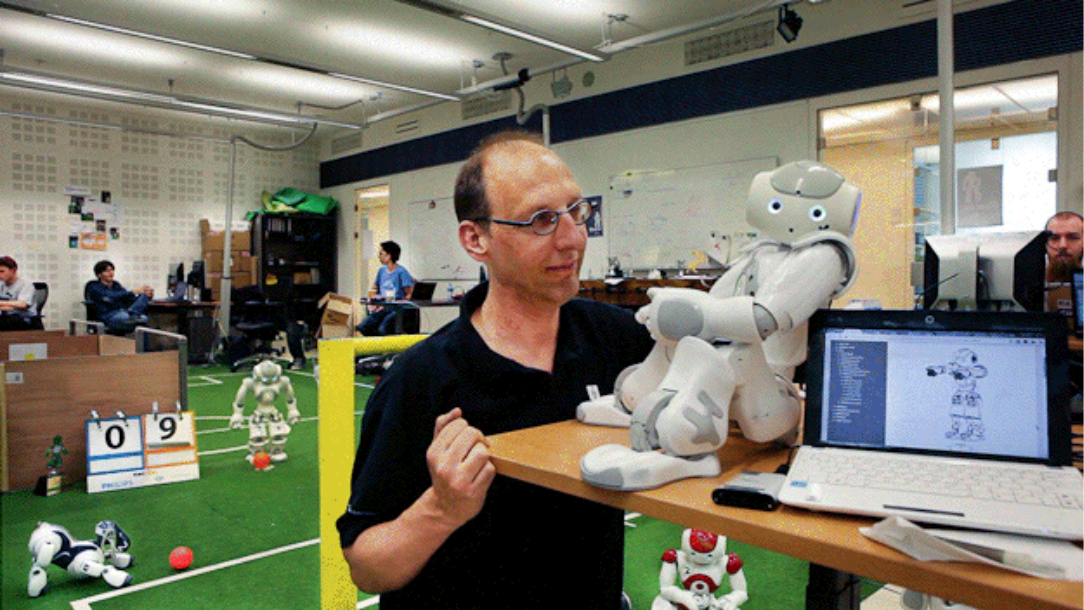
Photograph of Dr. Arnoud Visser and one of the robots at Intelligent Robotics Laboratory, courtesy of University of Amsterdam.
Why study robotics?
Robotics and artificial intelligence are growing fields of research, and applications are being implemented by several large technology companies. Examples include self-driving cars, smart cameras, surveillance systems, robotic manufacturing, machine translations, internet searches, and product recommendations.
Professionals with a degree in artificial intelligence can work in various roles and industries, for example as software analysts and developers, computer scientists and computer engineers, algorithm specialists, research scientists and engineering consultants, mechanical engineers and maintenance technicians, surgical technicians working with robotic tools, and medical health professionals working with artificial limbs, prosthetics, hearing aids and vision restoration devices.
With a background in AI and robotics, you will have a strong advantage in the job market, and be able to work with employing the latest technologies in the pioneering market players of today.
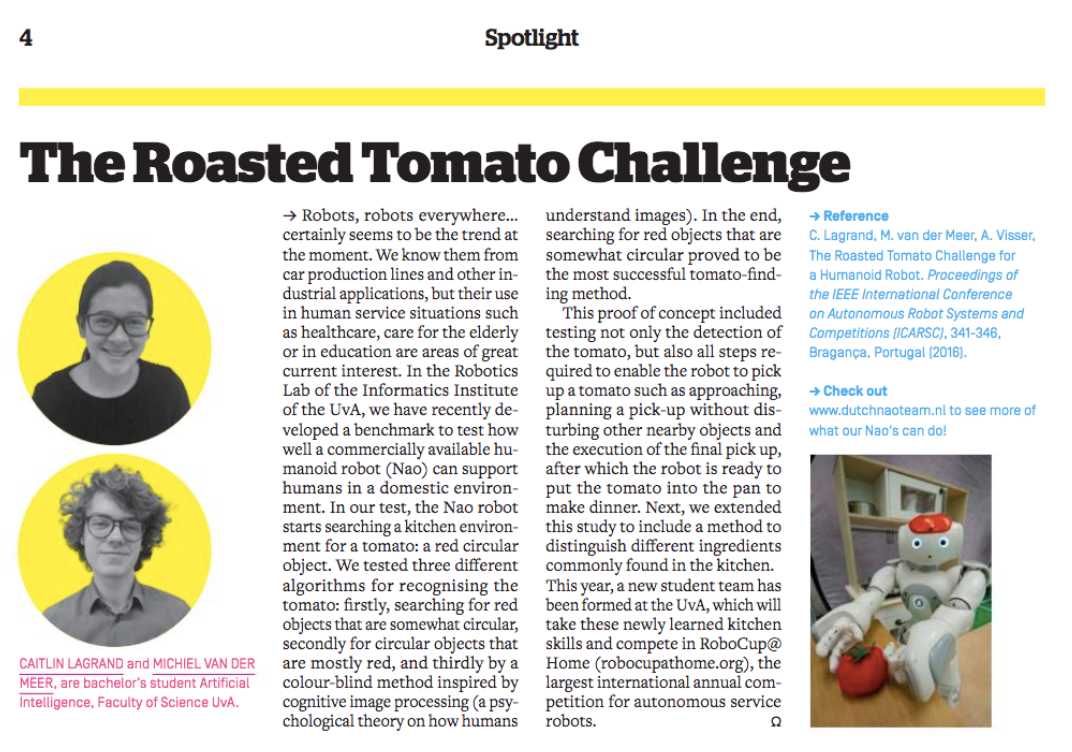
Caitlin Lagrand and Michel van der Meer, bachelor students in Artificial Intelligence at the Faculty of Science at University of Amsterdam, were featured in the cover story of Amsterdam Science #5 for their thesis “The Roasted Tomato Challenge for a Humanoid Robot”.
What can I study at Intelligent Robotics Laboratory?
The Intelligent Robotics Laboratory is a part of several programmes and courses on master and bachelor level.
Master programmes
The Master's degree programme MSc in Artificial Intelligence is offered through the University of Amsterdam, and has a technical approach towards AI research. It is a joint programme of the University of Amsterdam and the Vrije Universiteit Amsterdam, and consists of obligatory core courses, advanced AI courses and elective courses, a specialisation and thesis. The collaboration guarantees a wide range of topics, all taught by world renowned researchers who are experts in their field.
The Master’s programme MSc in Artificial Intelligence - Hybrid Intelligence, is offered through the Vrije Universiteit Amsterdam. This programme is oriented towards hybrid intelligence, where AI systems and humans collaborate. In this programme, you may study a technical approach to AI, focusing on the understanding, analysis and development of novel AI algorithms. Alternatively, you may focus on AI technology from a societal or human perspective, looking into questions such as “How can we develop and evaluate computer-based technology that uses knowledge about human functioning?” and “How can human and AI-technology complement each other?”
Bachelor programmes
The bachelor programmes held in collaboration with Intelligent Robotics Laboratory are Dutch language BSc Kunstmatige Intelligentie hosted by the University of Amsterdam, and English language BSc in Artificial Intelligence - Lifestyle Informatics offered by the Vrije Universiteit Amsterdam.
Independent courses
In addition to the degree programmes, the Intelligent Robotics Laboratory hosts several courses related to robotics. Dutch language “Zoeken, Sturen en Bewegen” within the BSc Kunstmatige Intelligentie programme, “Behavior-Based Robotics” within the BSc in PsychoBiology, “Autonomous Mobile Robots”, within the BSc Kunstmatige Intelligentie, and master level “Probabilistic Robotics” within MSc in Artificial Intelligence, all offered by through University of Amsterdam. Furthermore, several supporting courses are available from the Vrije Universiteit Amsterdam
RoboCup and robot research
A Dutch Nao robot representing the SPL team B-Human, University of Amsterdam, playing at RoboCup 2016 in Leipzig, Germany. Photograph by Peter Schulz.
Seeming more like play than work, RoboCup and other robotics competitions ignited the foundation of the Intelligent Robotics Laboratory. The robots participating in the competitions are used in research in artificial intelligence, machine learning, and other related fields. The interaction between robots and other objects, as well as between robots and humans, have given rise to several research papers and articles.
Breakthroughs in robotics research
Two major breakthroughs in the development of robotics occurred through games. In May 1997, IBM Deep Blue defeated the human world champion in chess. In October 2015, the original AlphaGo became the first computer Go program to beat a human professional Go player without handicaps on a full-sized 19×19 board.
The RoboCup Federation states that their objective is to use RoboCup as a vehicle to promote robotics and AI research, by offering a publicly appealing, yet formidable challenge. The ultimate goal of the RoboCup Initiative is stated as “By the middle of the 21st century, a team of fully autonomous humanoid robot soccer players shall win a soccer game, complying with the official rules of FIFA, against the winner of the most recent World Cup.”
Seeing robots having beaten humans in games such as chess and go, the goal of winning in soccer may not be too far away.
About the author: Jenny Egnér Lin is born and raised in Stockholm, Sweden, and holds a B.Sc. in Business and Economics from Stockholm School of Economics and a M.Sc. in Strategic Market Creation from Copenhagen Business School. With firsthand experience from studying in Europe, she is sharing prime insights about life as a student at a European university.
![Jajaran Universitas Belanda di EHEF 2018 [Updated] Jajaran Universitas Belanda di EHEF 2018 [Updated]](https://ehef.id/storage/app/uploads/public/5bd/adf/dcb/5bdadfdcbf57a698739008.png)



